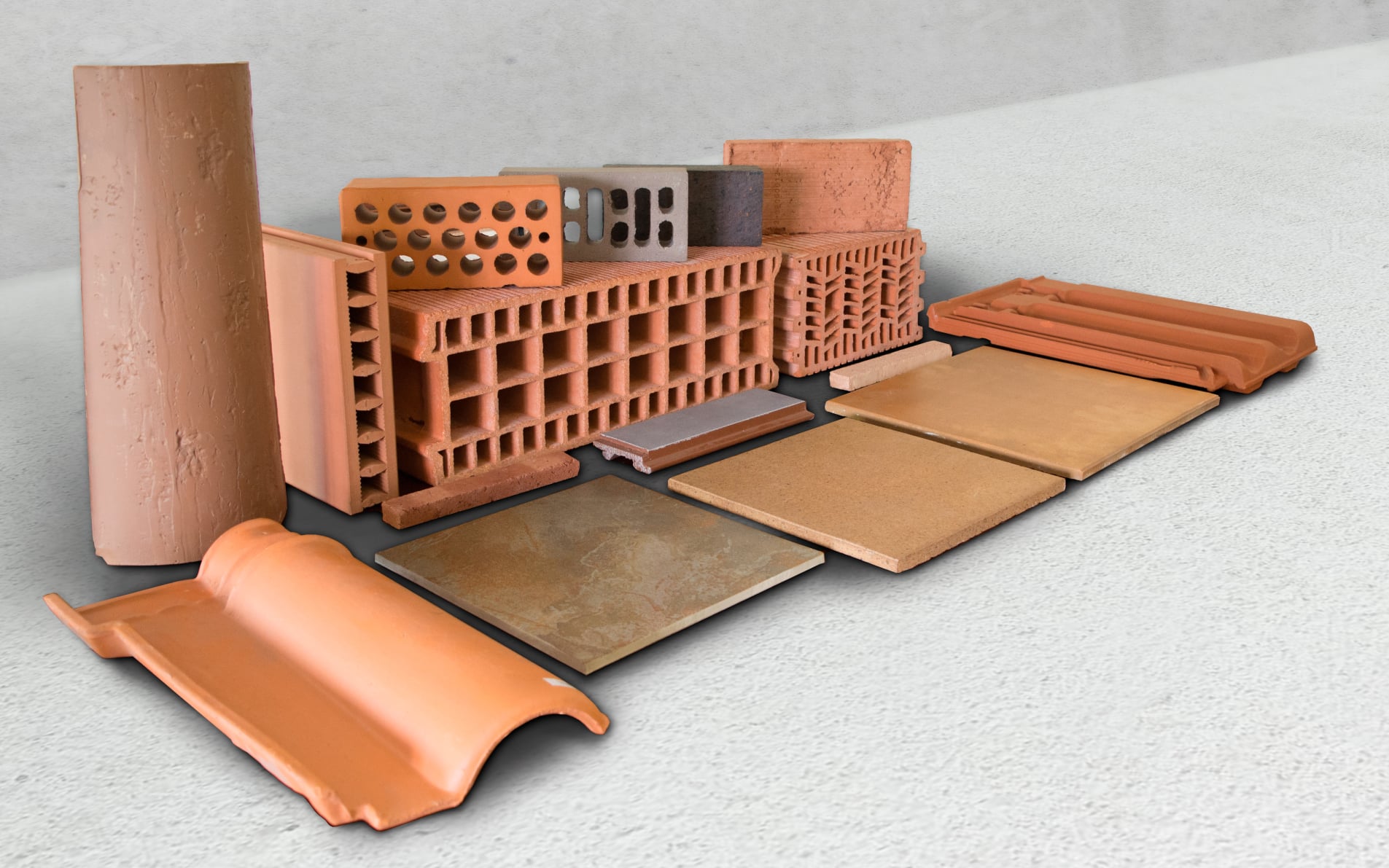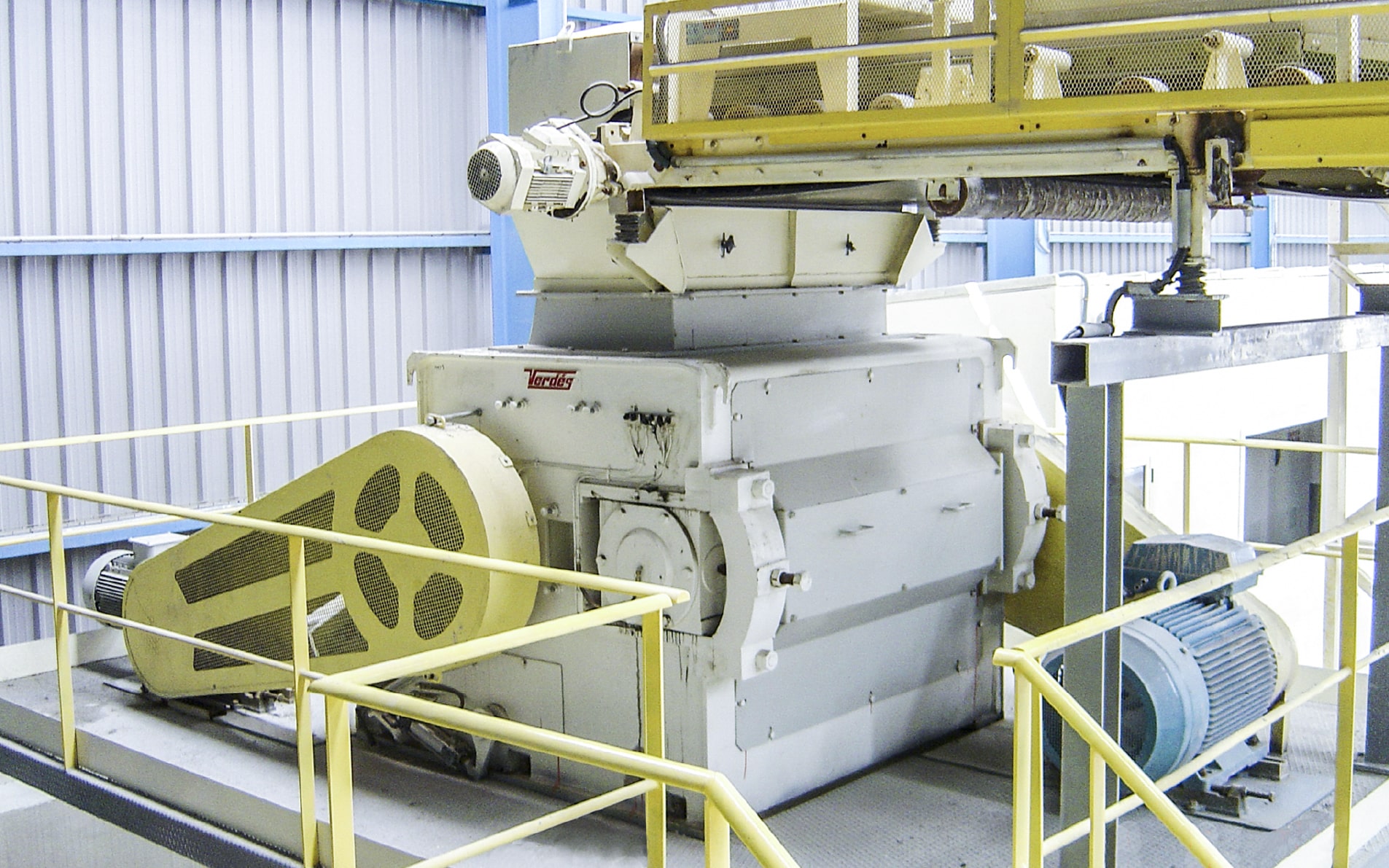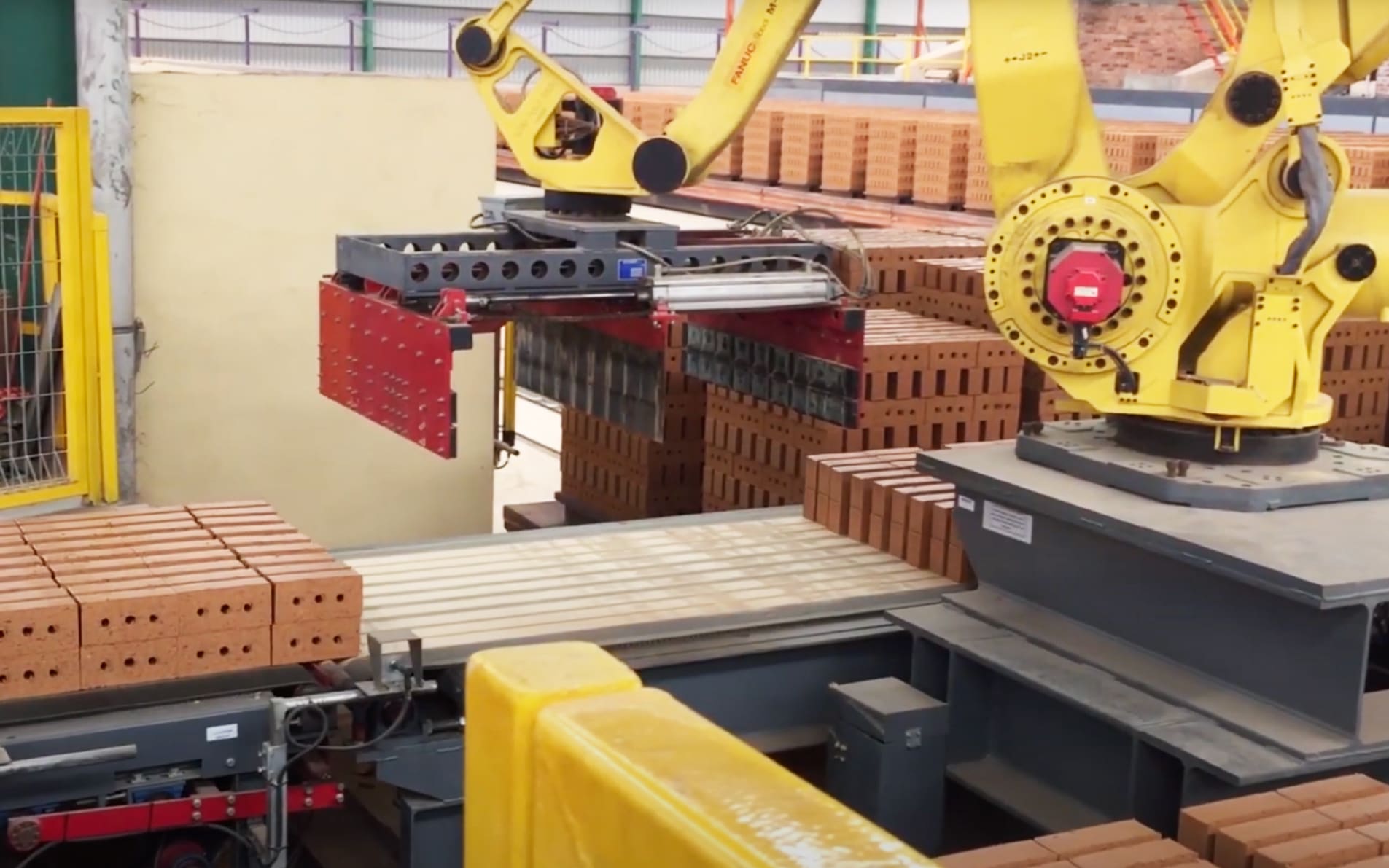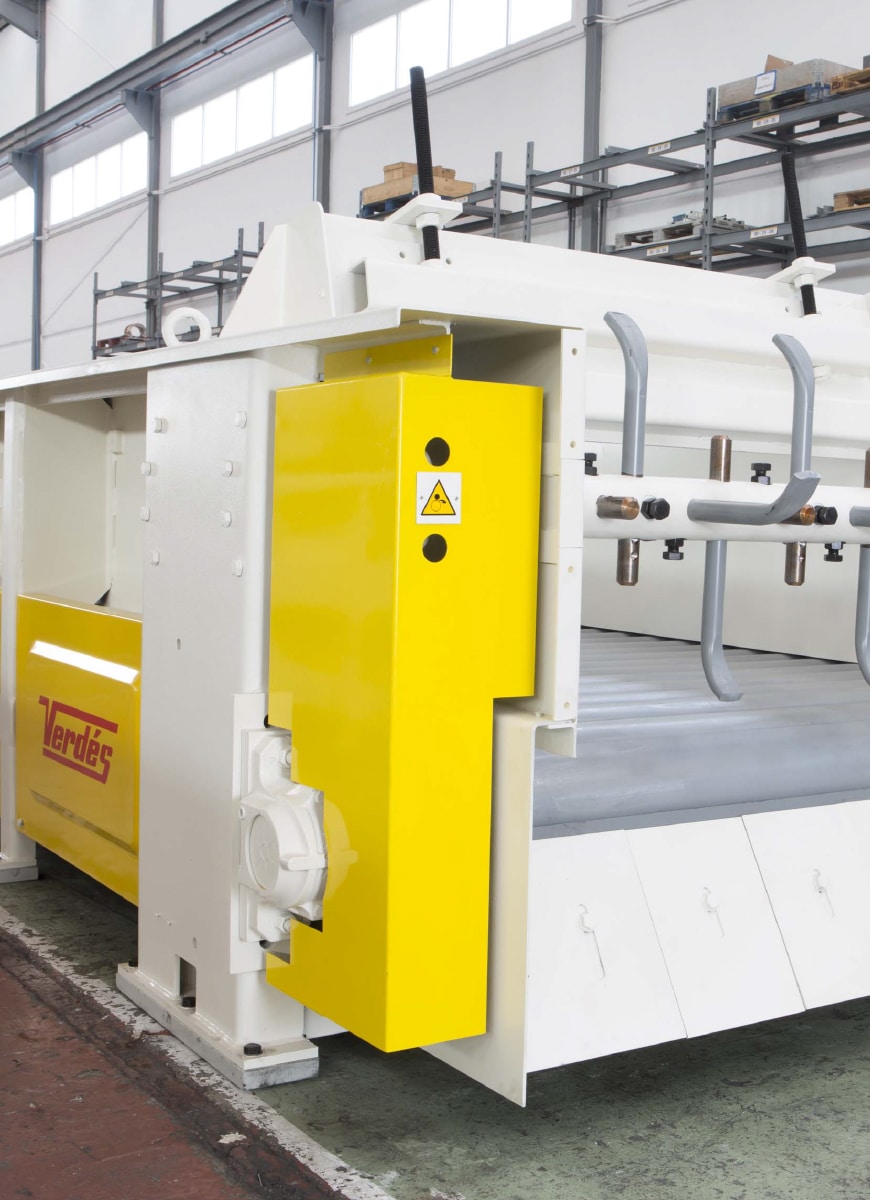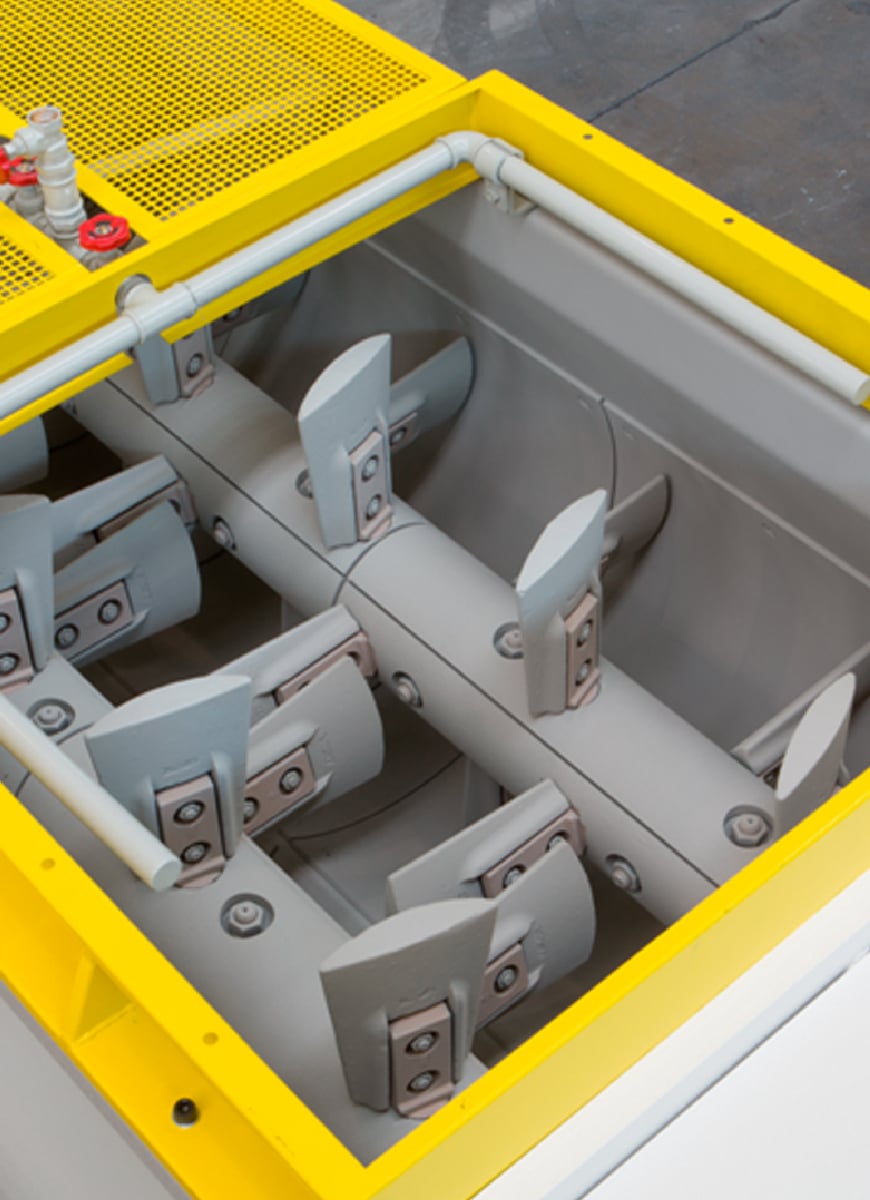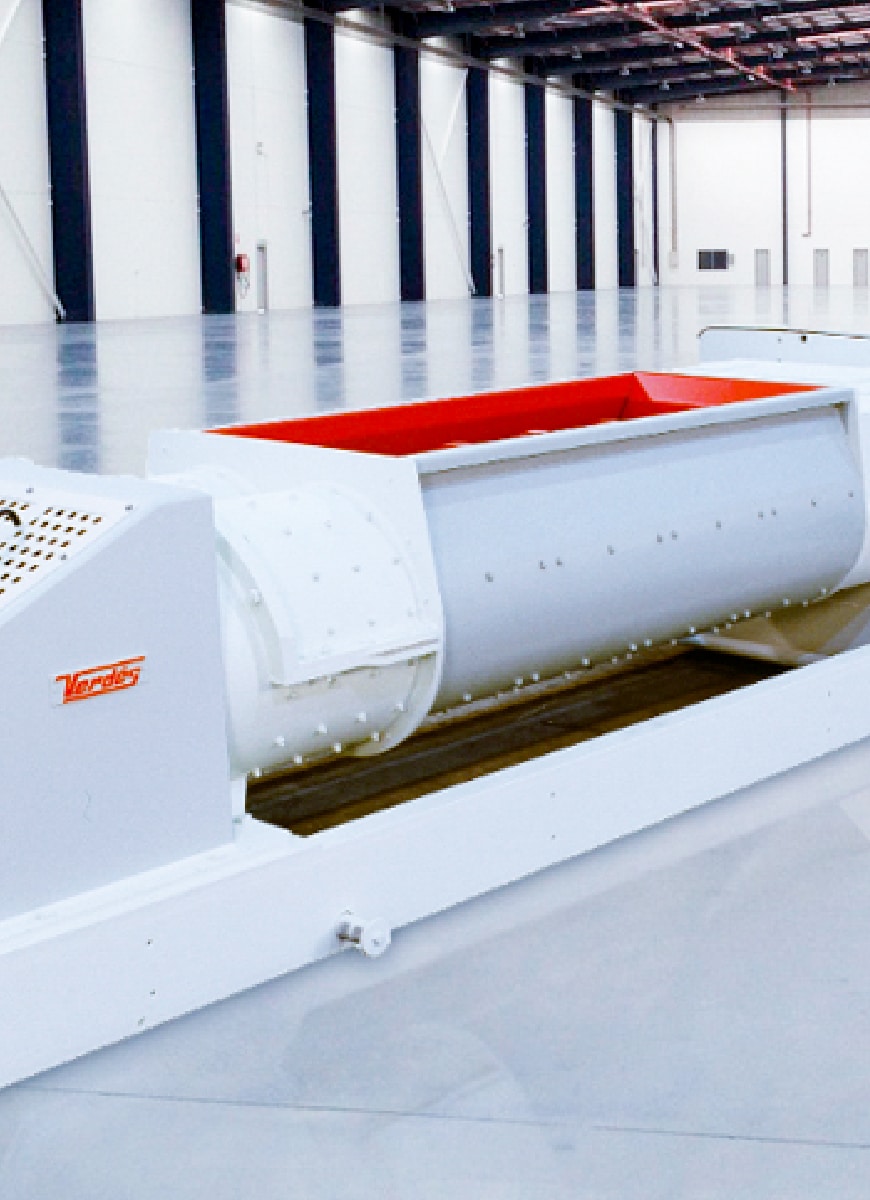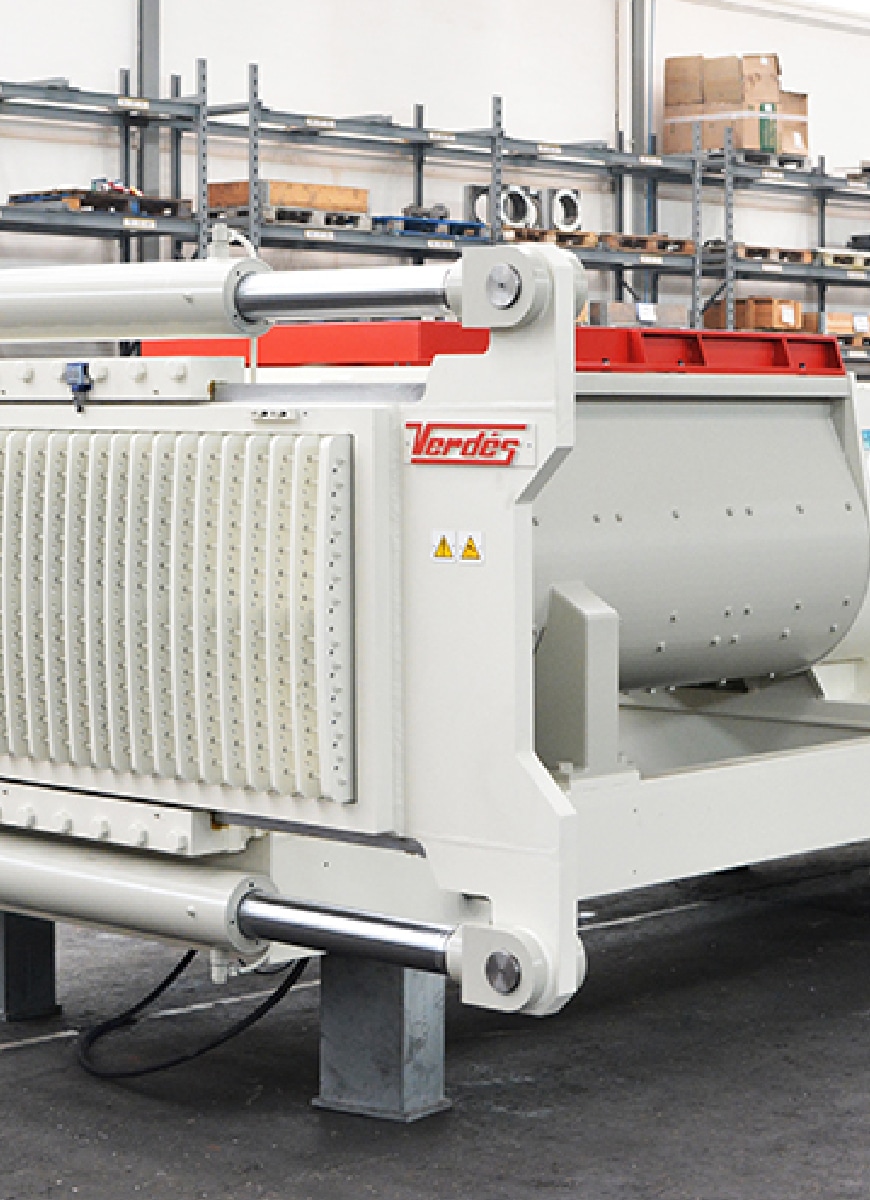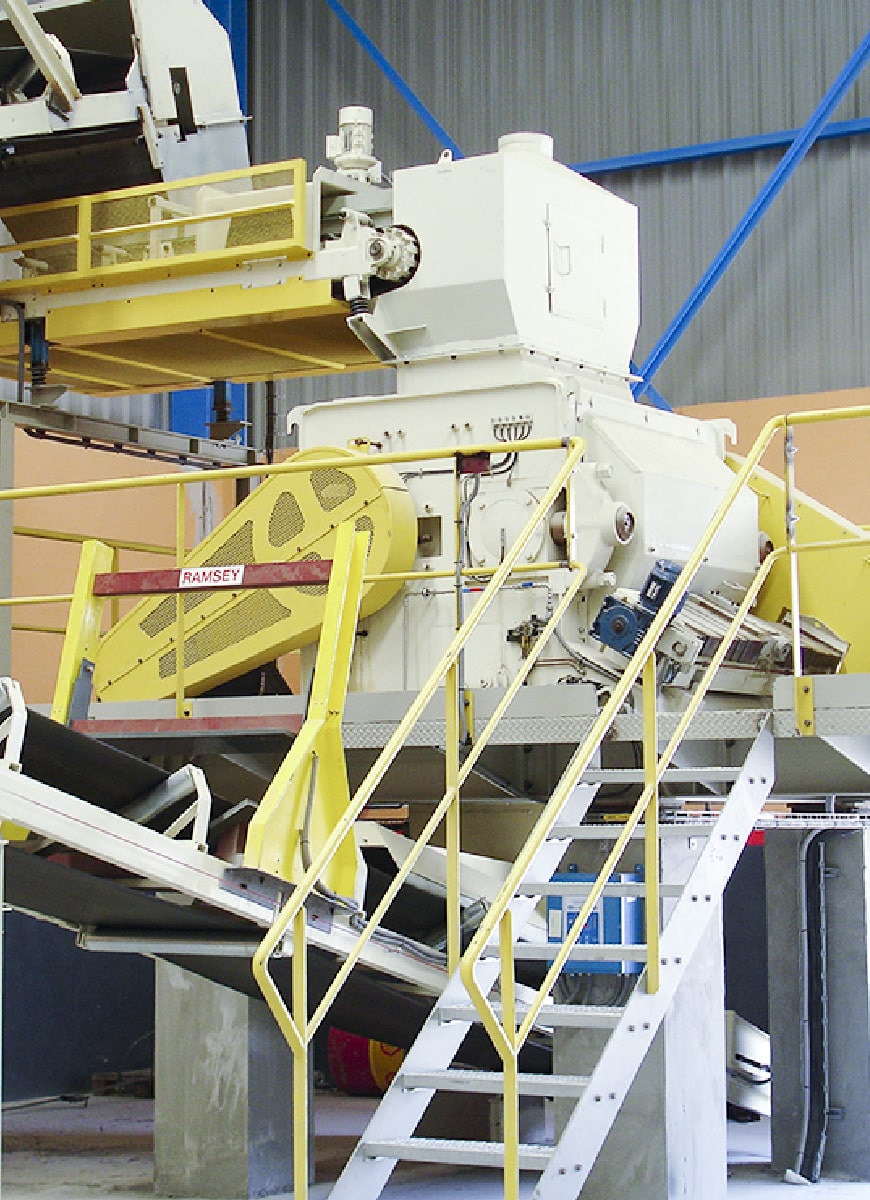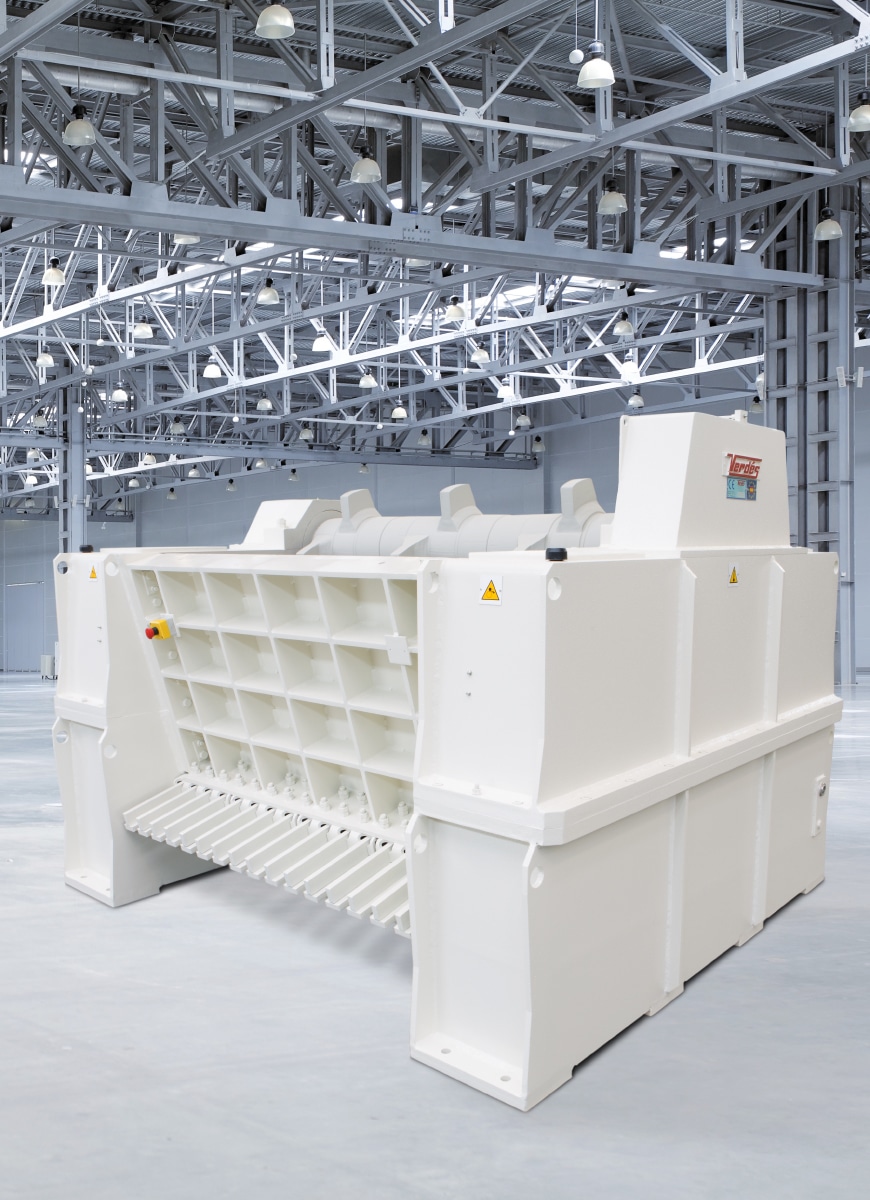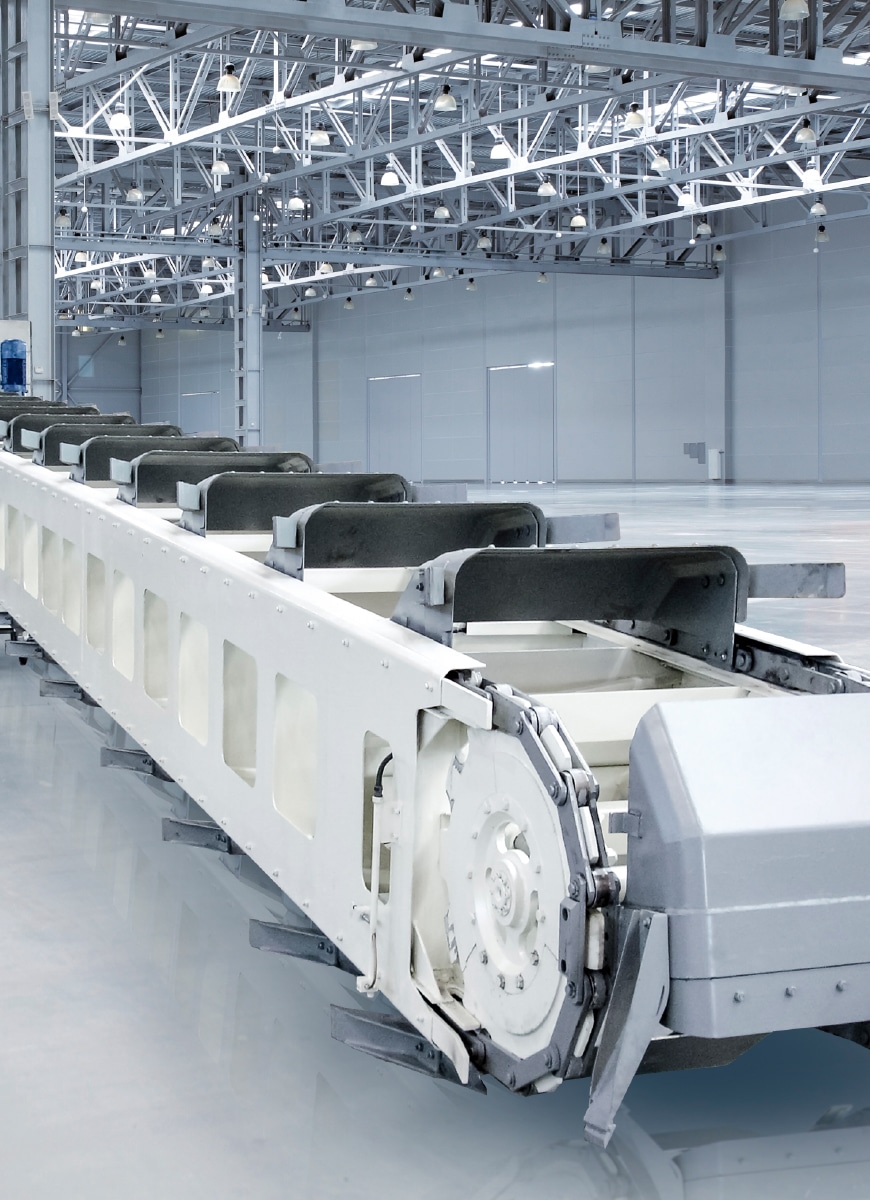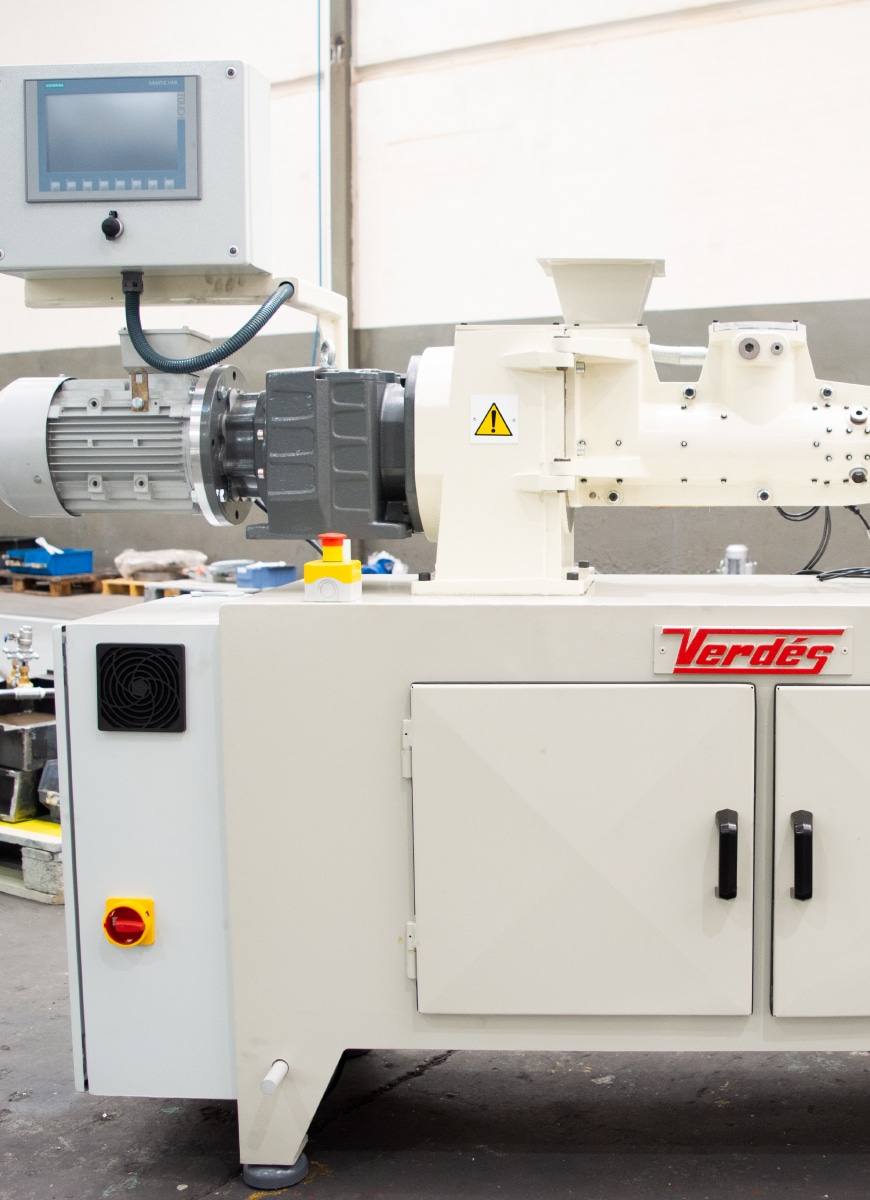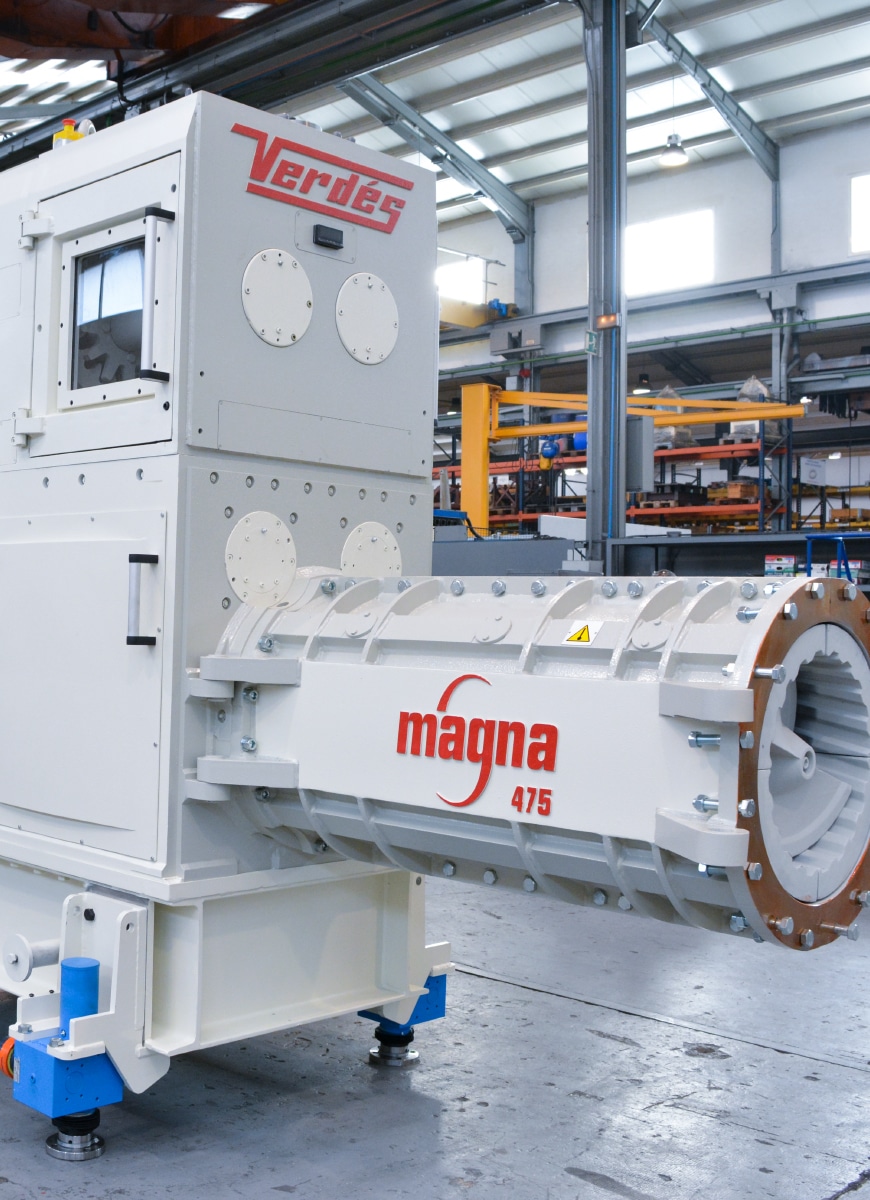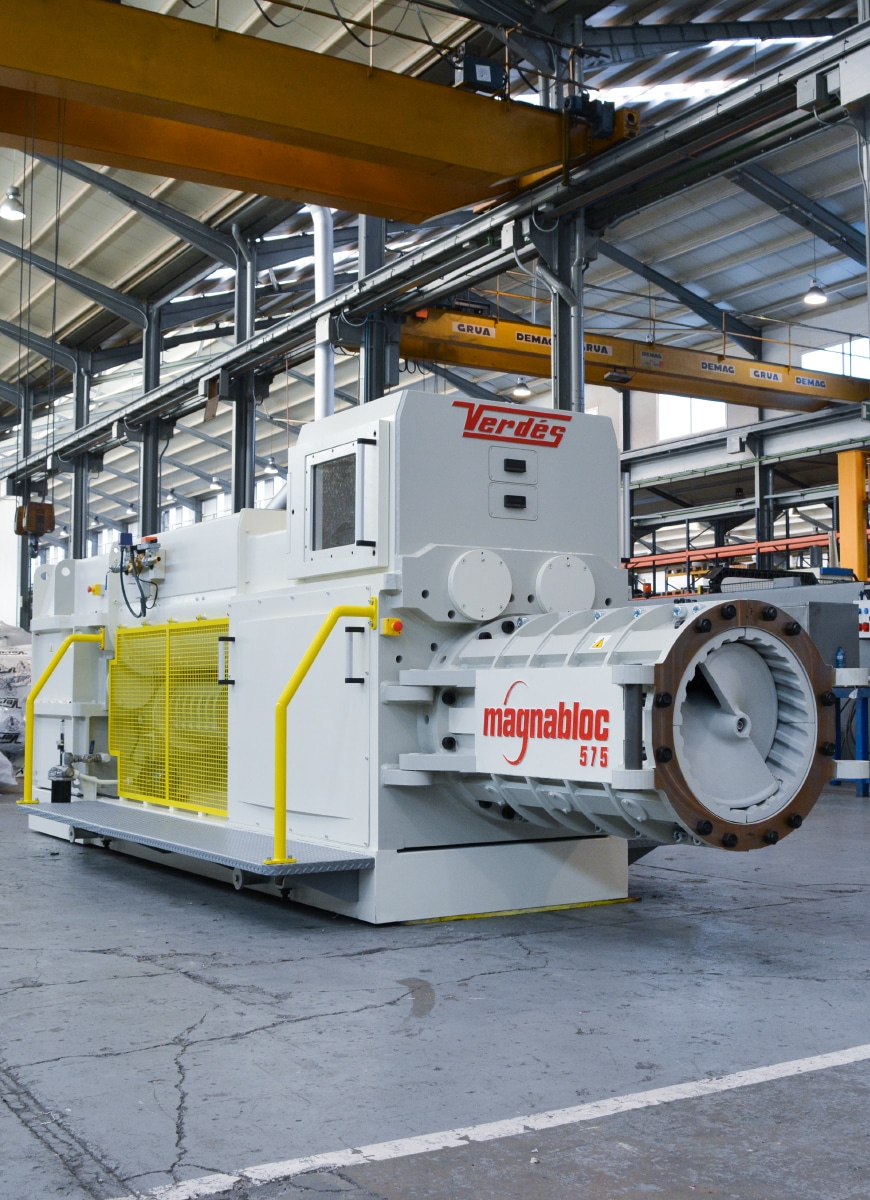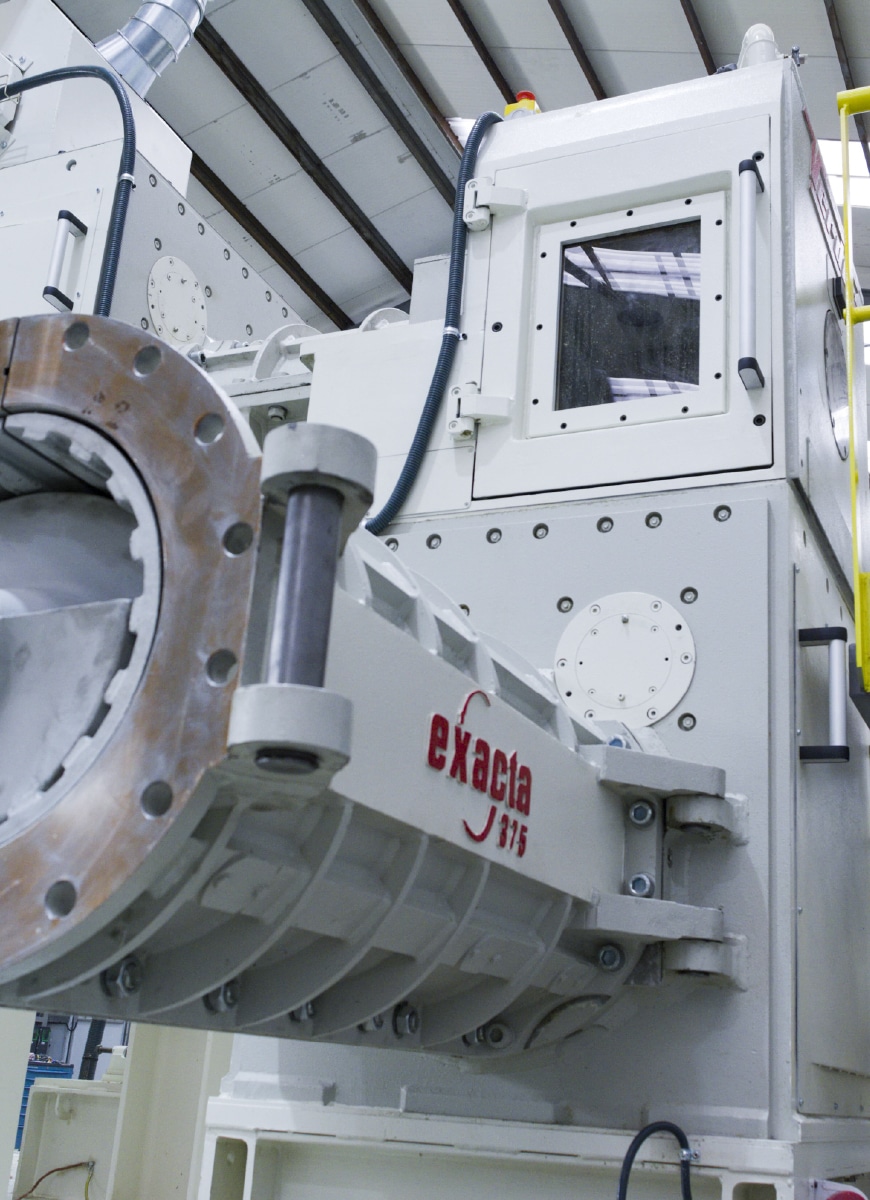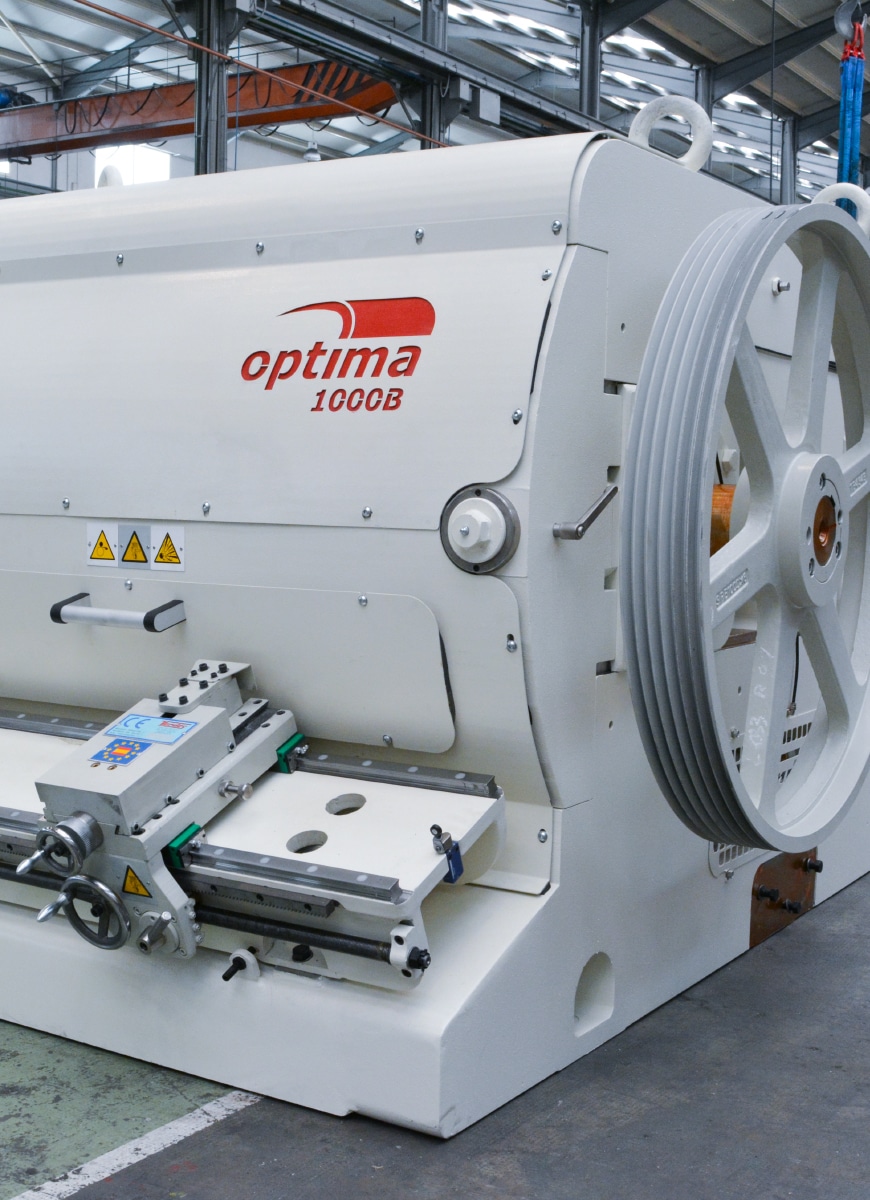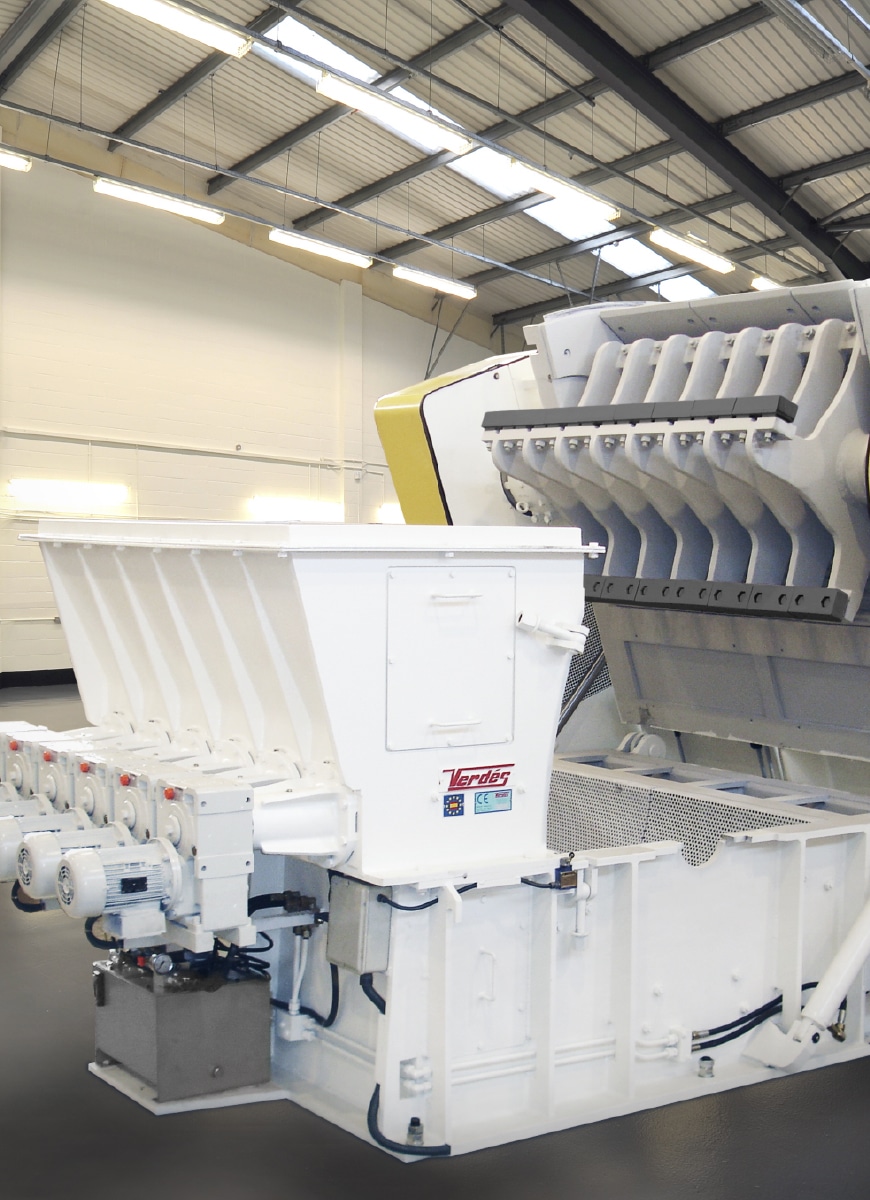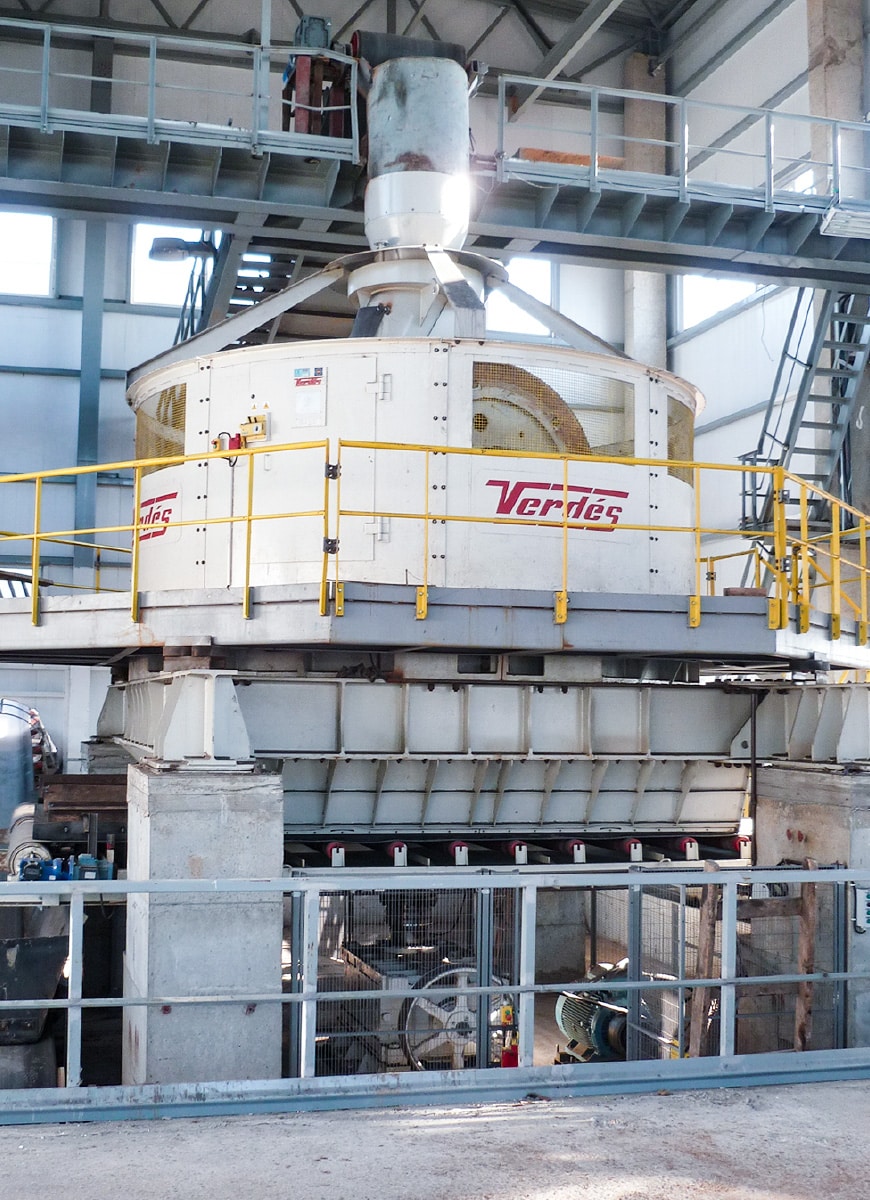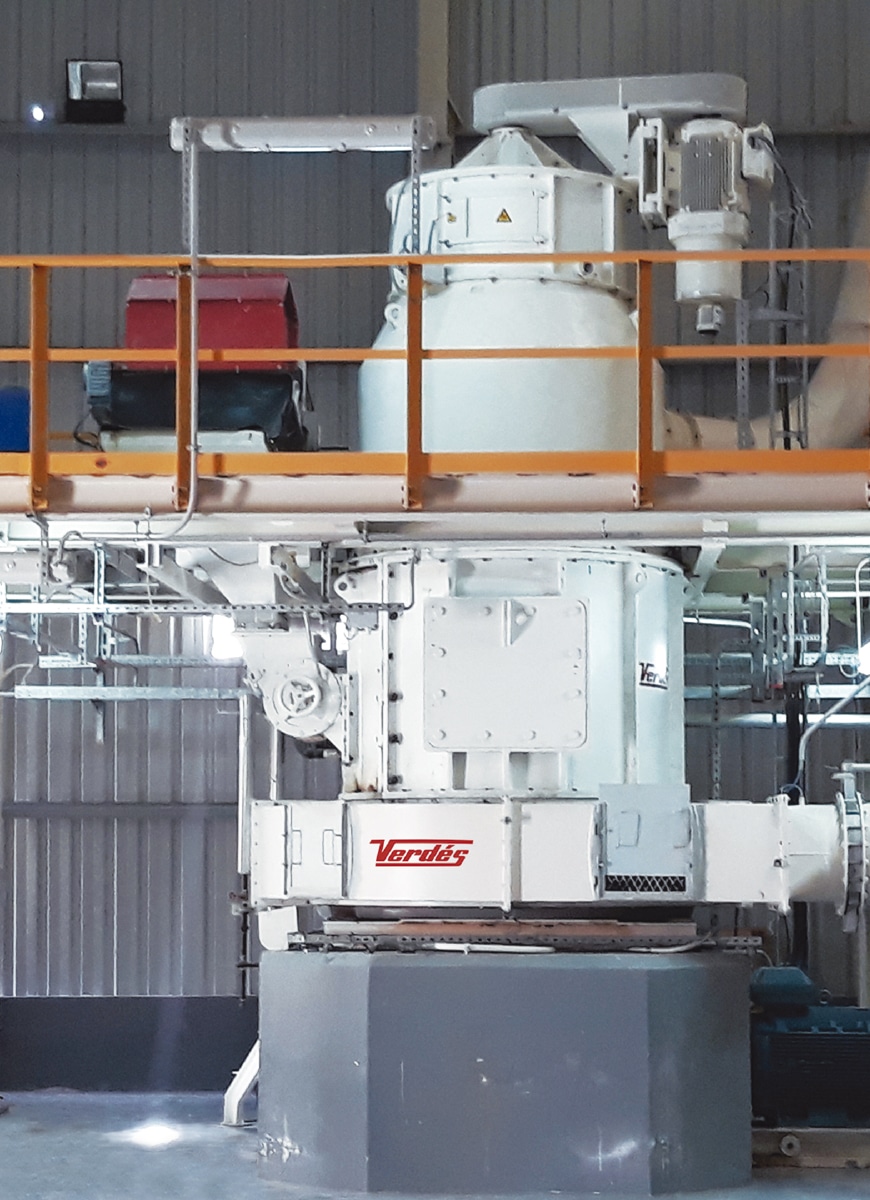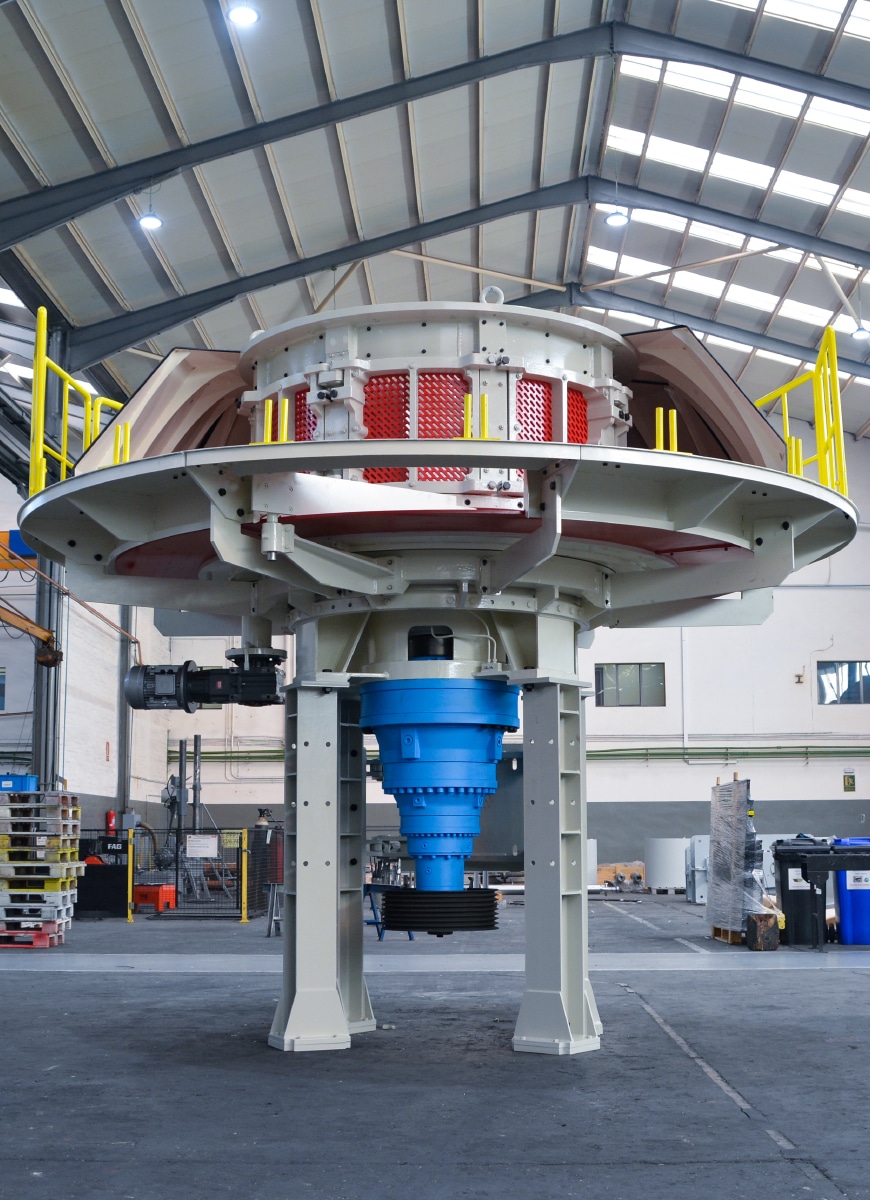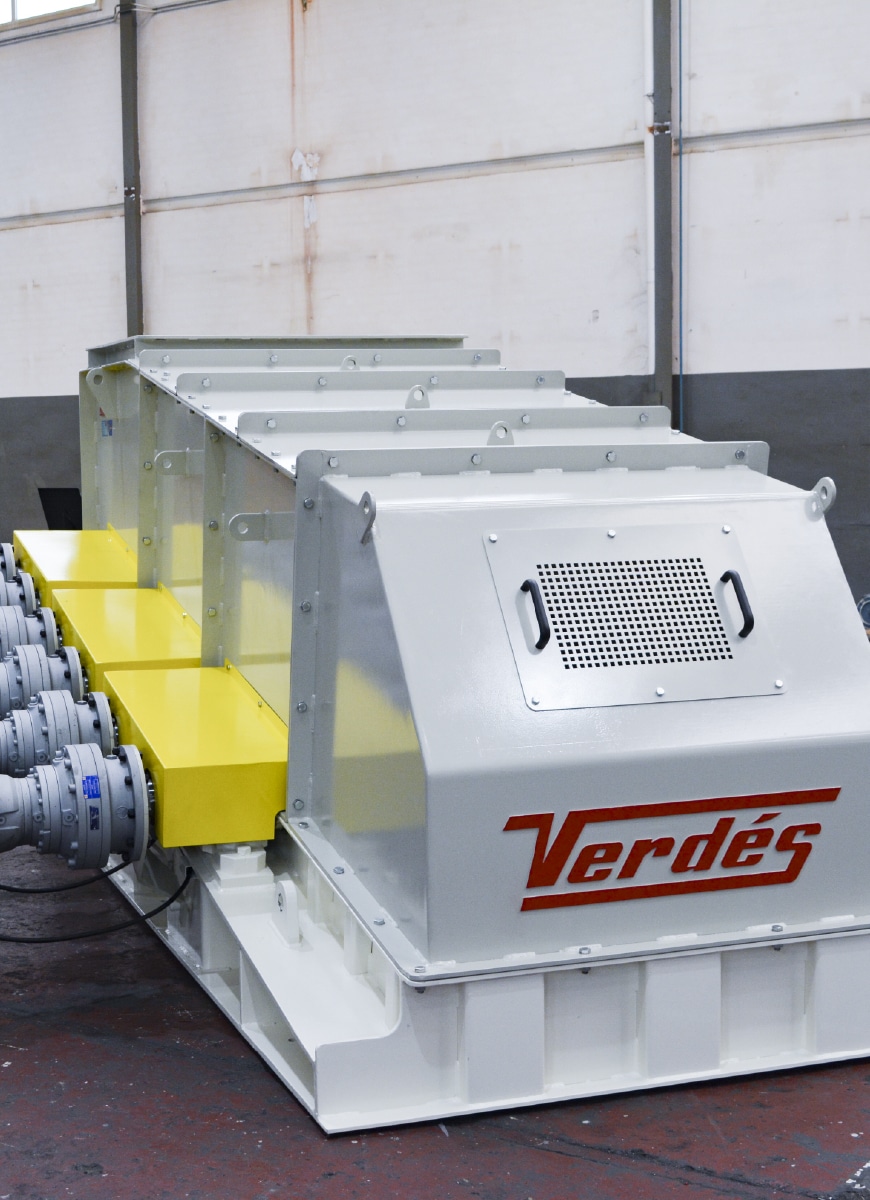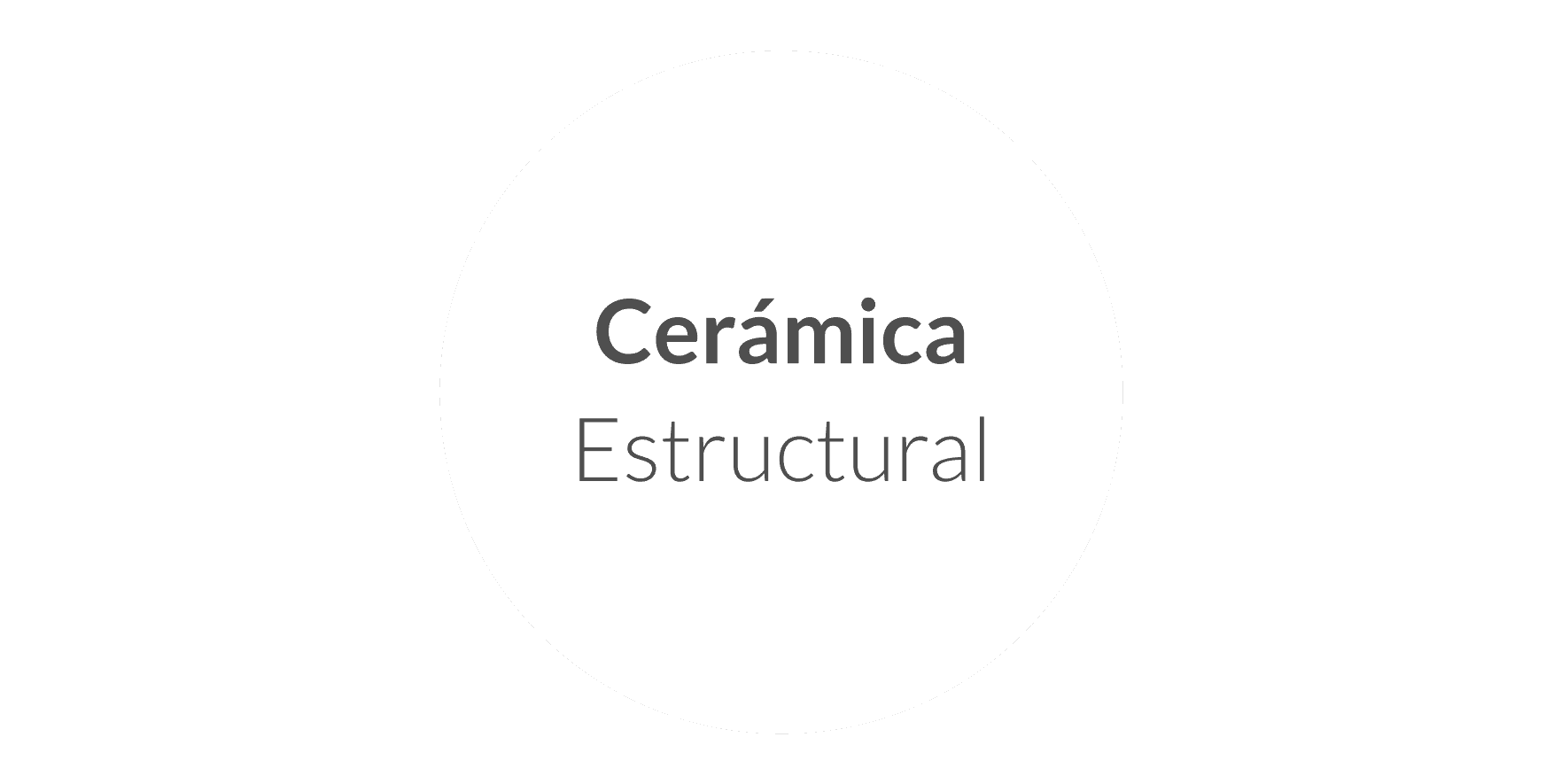
Since 1908, at Verdés we have manufactured and marketed machinery for grinding, mixing and extruding clay and other minerals – mainly used to manufacture all kinds of bricks, tiles and extruded stoneware, as well as to process minerals and waste of a different nature.
Preparation and grinding of clay via dry processing
Since it is done using impact or percussion, the dry milling and grinding of clay will always be more effective with dry, hard clays than with wet, soft clays, which absorb part of the energy of the impact due to plasticity, thereby reducing the effectiveness of the process, making it unfeasible.
Therefore, it is advisable to use dry processing:
· For clays with a moisture content under 12% which may vary according to plasticity.
· For clays with high limestone content, in order to minimise the presence of “lime blows” in the finished pieces.
· When you want to produce a quality ceramic product, such as floor tile, stoneware, roof tile, face brick, etc.
Preparation and grinding of clay via wet processing
We understand wet processing as the process capable of working with clays above 12% humidity. The main debate lies in the selection of equipment that can be used for secondary grinding, after a primary phase of crushing. In this case, the ceramicist should choose between the Pan Grinder and the Crusher, based on the cost and space available, the moisture content and abrasion rate of their clays.
After this secondary grinding phase, a rolling mill is used to achieve more finely granulated clay. With a second and occasionally third laminate, suitable crushing qualities are achieved to produce ceramic products with added value, such as stoneware, roof tiles or facing brick.
Direct setting
The principle of direct setting consists of drying the wet (or green) bricks in the same kiln cars and is designed for clays with low drying shrinkage and high mechanical resistance, requiring extrusion with low humidity and high pressure. The dryers used in this process use the kiln cars to transport the “raw” bricks to the drying facility, allowing for fewer loading and unloading devices.
In addition, they allow for increased simultaneous production capacity, based on the acceleration of the production rate of the furnace, with a low investment in mechanisms, a reduction in the general maintenance of the plant and a better optimisation of the production process.
Structural Ceramics
Since 1908, at Verdés we have manufactured and marketed machinery for grinding, mixing and extruding clay and other minerals – mainly used to manufacture all kinds of bricks, tiles and extruded stoneware, as well as to process minerals and waste of a different nature.
Preparation and grinding of clay via dry processing
Preparation and grinding of clay via dry processing
Since it is done using impact or percussion, the dry milling and grinding of clay will always be more effective with dry, hard clays than with wet, soft clays, which absorb part of the energy of the impact due to plasticity, thereby reducing the effectiveness of the process, making it unfeasible.
Therefore, it is advisable to use dry processing:
- For clays with a moisture content under 12% which may vary according to plasticity.
- For clays with high limestone content, in order to minimise the presence of “lime blows” in the finished pieces.
- When you want to produce a quality ceramic product, such as floor tile, stoneware, roof tile, face brick, etc.
Preparation and grinding of clay via wet processing
We understand wet processing as the process capable of working with clays above 12% humidity. The main debate lies in the selection of equipment that can be used for secondary grinding, after a primary phase of crushing. In this case, the ceramicist should choose between the Pan Grinder and the Crusher, based on the cost and space available, the moisture content and abrasion rate of their clays.
After this secondary grinding phase, a rolling mill is used to achieve more finely granulated clay. With a second and occasionally third laminate, suitable crushing qualities are achieved to produce ceramic products with added value, such as stoneware, roof tiles or facing brick.
Direct setting
The principle of direct setting consists of drying the wet (or green) bricks in the same kiln cars and is designed for clays with low drying shrinkage and high mechanical resistance, requiring extrusion with low humidity and high pressure. The dryers used in this process use the kiln cars to transport the “raw” bricks to the drying facility, allowing for fewer loading and unloading devices.
In addition, they allow for increased simultaneous production capacity, based on the acceleration of the production rate of the furnace, with a low investment in mechanisms, a reduction in the general maintenance of the plant and a better optimisation of the production process.
Ceramic products manufactured with Verdés machines
Today, ceramicists around the world make a great variety of bricks and other high-quality ceramic products using Verdés machinery. Below, we will show you a selection of items produced by some of our customers to illustrate the main solutions that Verdés machinery offers in the Structural Ceramics sector.
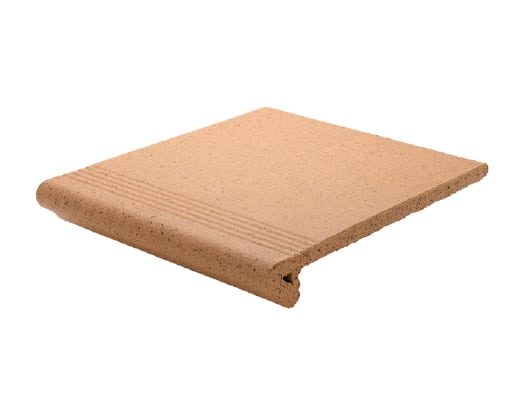
Stoneware tiles
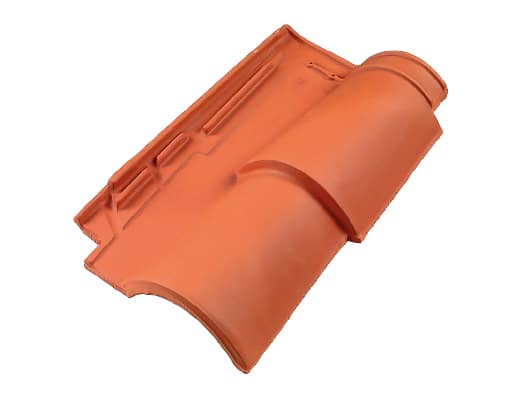
Roof tiles
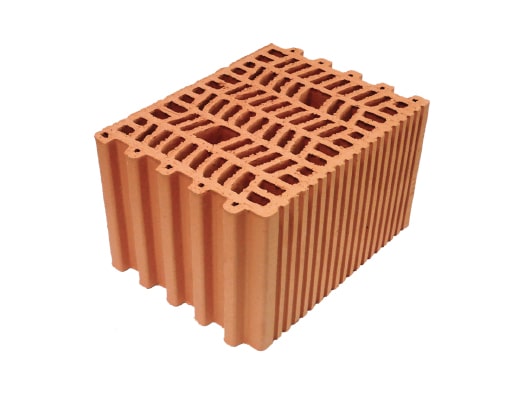
Thermal clay
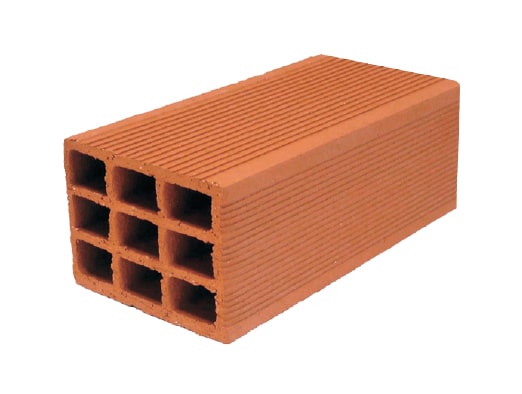
Airbrick
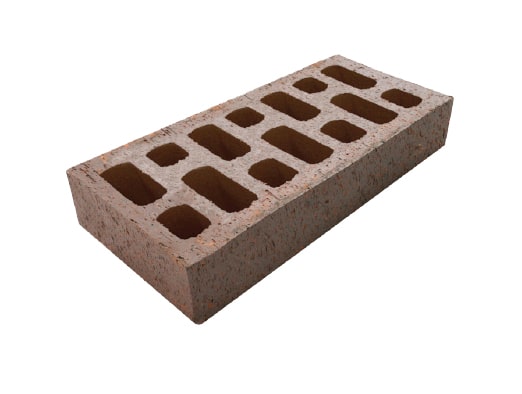
Face brick
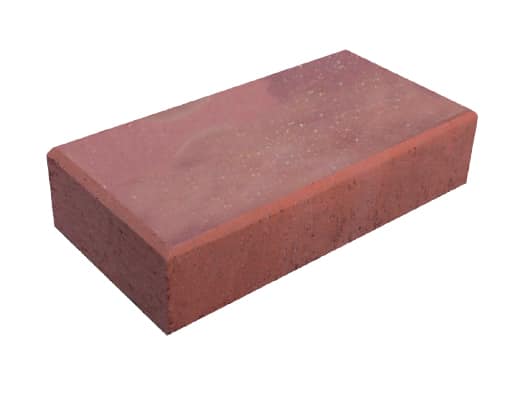
Paving
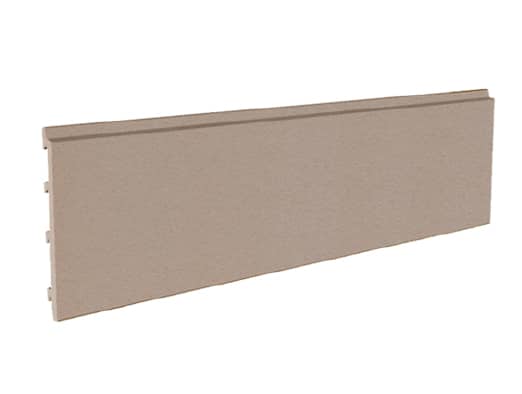
Ventilated façade
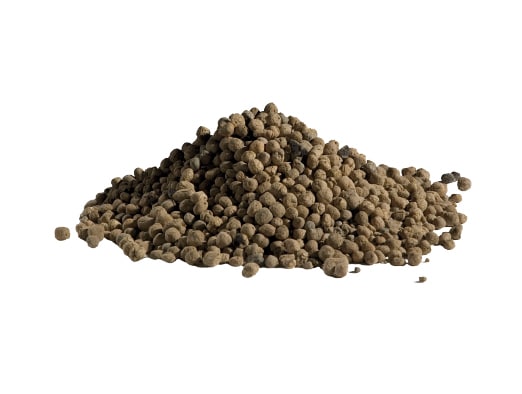
Expanded clay
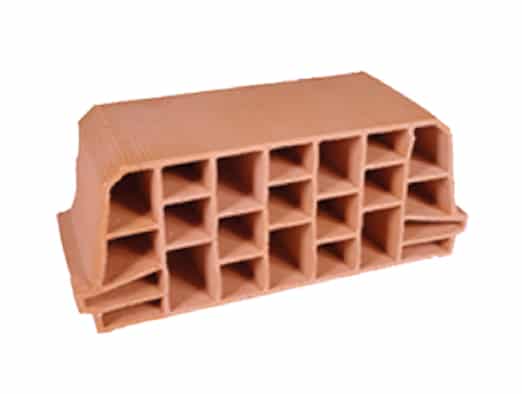
Joist filler block
Ceramic products manufactured with Verdés machines
Today, ceramicists around the world make a great variety of bricks and other high-quality ceramic products using Verdés machinery. Below, we will show you a selection of items produced by some of our customers to illustrate the main solutions that Verdés machinery offers in the Structural Ceramics sector.


